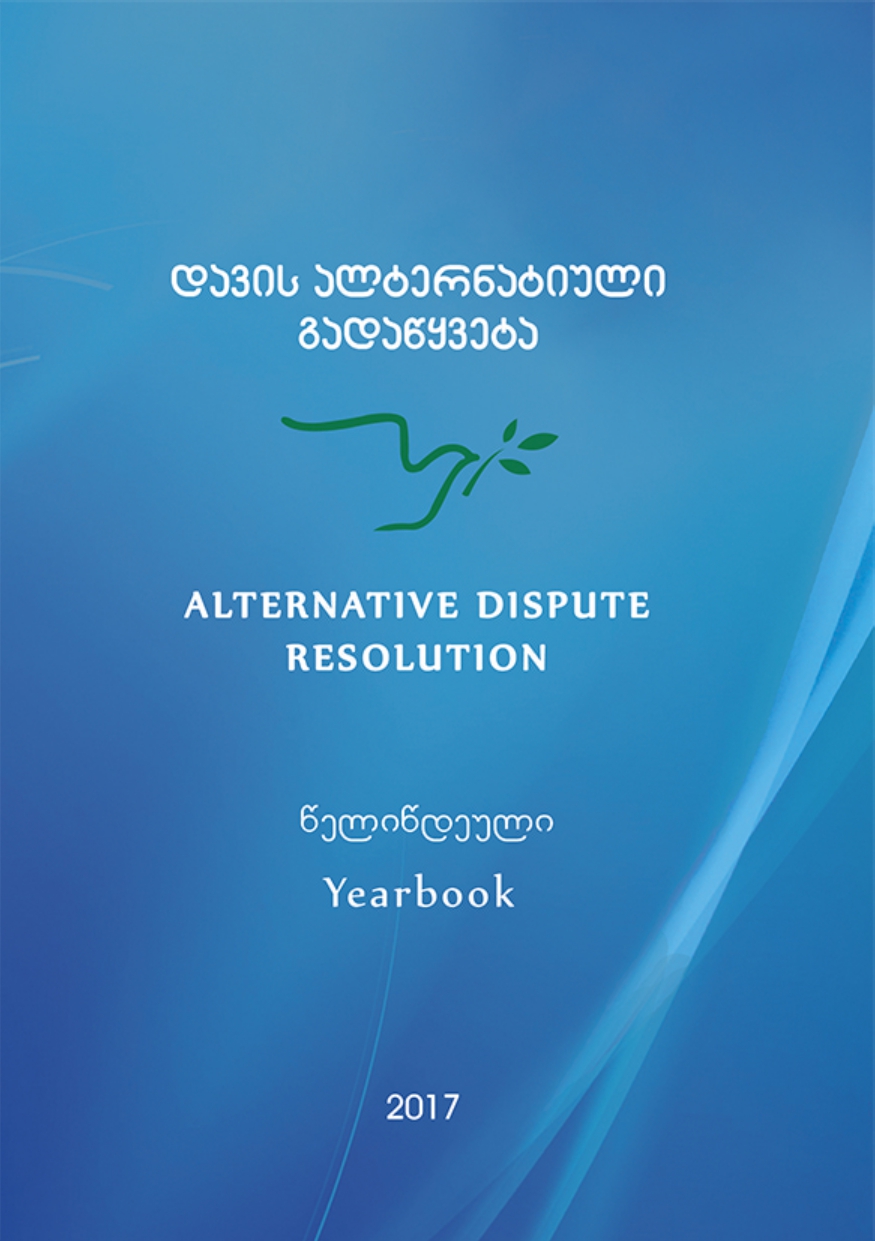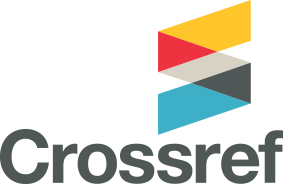Mediation as a Profession: Ethical Models, Principles and Challenges
Keywords:
mediation ethics, profession of mediator, legislative regulation of ethics, ethical principles and models, ethics codes, ethical challenges, solving ethical challenges.Abstract
The paper discusses idea and importance of mediation, its professional assignment and value, discusses in more details main issues of mediation ethics, its established models which are still developing and needs perfecting by combining practice and theory. In addition, based on legislative regulations of different countries, discussing mediation codes of ethics and their comparison in the paper, we shall define the basic principles of mediation, main ethical challenges of mediator’s activities which need reaction on time on national and international level. As a result, by analyzing problems existing in mediation ethics sphere, ethical challenges will be differentiated and it will be possible to talk about their solution. This will be the step forward for developing mediation practice and theory.
References
Belgian Code of Ethics for Accredited Mediators by Federal Mediation Commission in 2007.
Code of Ethics for Lawyers-Mediators by Czech Bar Association.
U.S Code, Title 29, Chapter 7, Subchapter III, § 172, Federal Mediation and Conciliation Service.
Armengol V.F., The principles of mediation and the role of third parties in peace processes, Norwegian Peacebuilding Resource Centre Report, September 2013, 5.
Astor H., Chinkin C., Dispute Resolution in Australia, Butterworths, 2nd ed., 2002, 10, 14.
Burns R.J., Jr, Mediation Techniques and Why Honesty is Always the Best Policy, Perry Dampf Dispute Solutions Report, 2014, 7.
Burns R.P., Some Ethical Issues Surrounding Mediation, Fordham Law Review, Vol. 70, Issue 3, 2001, 695.
Crowe J., Mediation Ethics and the Challenge of Professionalisation, Bond Law Review Vol. 29, Issue 1, 2017, 6.
Della Noce D.J., Evaluative Mediation: in search of Practice Competencies, Conflict Resolution Q. 193, 2009, 43.
Ethical Guidelines for Mediators in Australia by The Law Council of Australia.
Fisher R., William U., Getting to YES, Negotiating Agreement Without Giving In, 2nd ed., Harvard Negotiation Project, Penguin Books, New-York, 1991, Introduction, 7, 10.
Gerald H., ADR in Business, Practice and Issues across Countries and Cultures, Kluwer Law International, New-York, 2006, 35.
Greenberg E., Confidentiality: The Illusion and the Reality—Affirmative Steps for Lawyers and Mediators to Help Safeguard Their Mediation Communications, NYSBA New York Dispute Resolution Lawyer, Spring 2013, Vol. 6, No. 1, 10.
Guillemin J.F., Reasons for Choosing Alternative Dispute Resolution, ADR in Business-Practice and Issues across Countries and Cultures, Vol. 2, Kluwer Law International BV, The Netherlands, 2011, 35.
Harman J., From Alternative to Primary Dispute Resolution: The pivotal role of mediation in (and in avoiding) litigation, Speech delivered at National Mediation Conference, Melbourne, Australia 2014, 7.
Hedeen T., Raines S., Barton A.B., Best Practices for mediation training and regulation: preliminary findings, Association of Family and Conciliation Courts, 2011, 112.
Hoffman D.A., Ten Principles of Mediation ethics, Boston Law Collaborative Journal, 2005, 56, 58.
Khubua G., Legal Theory, Meridiani, Tbilisi, 2012, 24 (in Georgian).
Kressel K., The strategic style in mediation, Wiley Periodicals, Inc., and the Association for Conflict Resolution, 2007, 12.
Luban D., Lawyers and Justice: An Ethical Study, Princeton University Press, 1988.
Moore Ch.W., The Mediation Process: Practical Strategies for Resolving Conflict, 4th ed., 2003, 17.
Nolan-Haley J., Self-Determination in International Mediation: Some Preliminary Reflections, Fordham University School of Law, 2007, 3-4.
Parker Ch., Regulation of the Ethics of Australian Legal Practice: Autonomy and Responsiveness, 25 University of New South Wales Law Journal, 2002, 676.
Parker Ch., Evans A., Inside Lawyers’ Ethics, Cambridge University Press, 2nd ed., 2014, 3.
Raines S.S., Pokhrel S.K., Poitras J., Mediation as a Profession: Challenges That Professional Mediators Face, Conflict Resolution Quarterly, Vol. 31, no.1, Fall 2013, 79, 81, 84.
Sander F., Headline Test, Dispute Resolution Magazine, Vol. 19, Number 1, Fall 2012, 14.
Simon W., The Practice of Justice: A Theory of Lawyers’ Ethics, Harvard University Press, 1998.
Stitt, Allan J. Mediation: a practical Guide, Cavendish Publishing, London, 2004, 1.
UIA Forum of Mediation Centers, Practice Guideline 1: Confidentiality in Mediation, Good Practices in Confidentiality adopted in Dublin, 7-10 September, 2007, 1.
Waldman E., Mediation Ethics: Cases and Commentaries, San Francisco: Jossey-Bass, 2011, 16.
Zariski A., A Theory Matrix for Mediators, Harvard College, 2010, 20.
Leynseele P.V., Dolezalova M., Ethics in mediation, 2012, 1.









